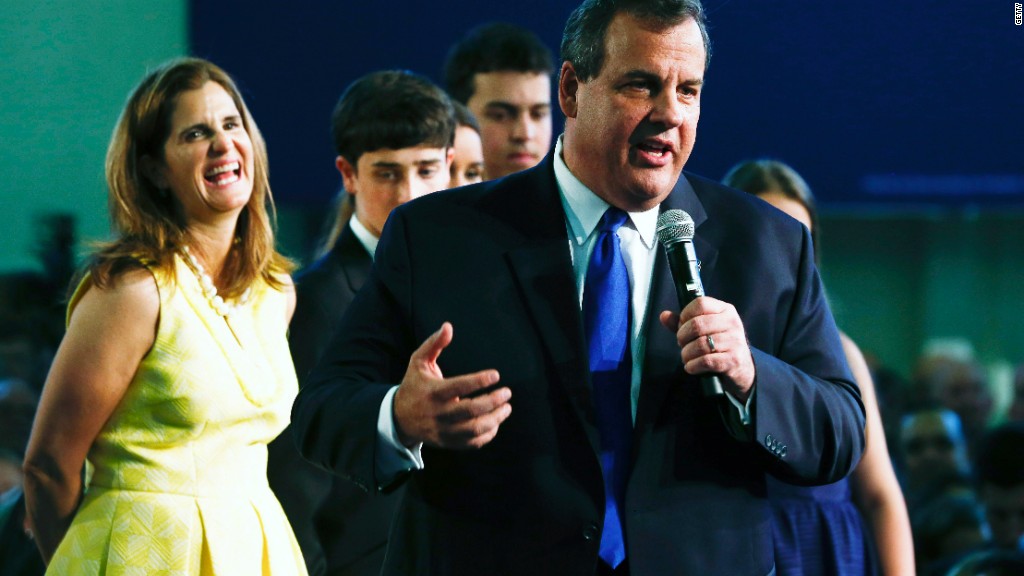
Chris Christie is officially in the 2016 presidential race and he's "telling it like it is." But his track record as New Jersey governor is no economic slam dunk.
New Jersey has yet to recover all the jobs the state lost in the recession. Most states -- including neighboring Pennsylvania and New York -- are now back on track and even adding more jobs, but not New Jersey.
"The state's economic recovery continues to lag the nation as the state has only recovered 62% of jobs lost during the recession, while the U.S. has recovered 132%," a recent Moody's report stated.
Gov. Christie likes to champion his business credentials, but New Jersey is frequently ranked as one of the worst states in the country for doing business, according to surveys of CEOs and the Tax Foundation. Overall economic growth has been lackluster -- the state ranked 46th for growth in 2014.
Since the recession, poverty is up, the state's revenues are down, and the New Jersey's unemployment rate remains well above the national average.
Related: America's 6 fastest growing state economies
The situation in New Jersey could make it difficult for Christie to challenge Jeb Bush, who presided over a period of strong growth in Florida, or Texas Governor Rick Perry, whose state is arguably the strongest economy in the country since the recession.
"We're one of a few states with increased poverty rates since 2009, and we have a declining middle class in New Jersey," says Gordon MacInnes, president of New Jersey Policy Perspective, a left-leaning think tank.
Related: Is Texas America's best state economy?
Signature policies: Christie inherited a number of problems when he came into office in January 2010 just after the Great Recession. New Jersey's economy is heavily dependent on financial services and related industries that were hit hard by the crisis. Superstorm Sandy in 2012 and the ongoing problems in Atlantic City haven't helped either.
"Governors can only do so much," notes MacInnes. "He certainly inherited a difficult situation with the Great Recession and the plummeting of economic revenues to the state that began with Governor Corzine."
But the question becomes, what did Gov. Christie do to try to jumpstart growth? He has reduced government spending, especially for higher education and some social programs, in order to not raise taxes. This year he went a step further and proposed cutting income and corporate tax rates in New Jersey.
"We're a very highly taxed state. We're near or at the top nationally," says Jerry Cantrell, president of the Common Sense Institute of New Jersey, a right-leaning think tank. "Business leaders aren't necessarily eager to expand or relocate into an area with high property and sales taxes."
Cantrell credits the governor for holding the line on taxes and spending and points out that Christie has also faced a Democratic legislature since he took office, which makes it harder to get initiatives done.
The state's pension plans are also severely underfunded, which pre-dates Christie. Since the governor took office, the state has had its creditworthiness rating cut several times. It currently has the second lowest credit rating of any state -- only behind Illinois, according to Moody's.
Gov. Christie enacted a major pension reform in 2011, but the law has been challenged in court and the Christie administration has tried to backtrack on some payments to the pension system in order to balance the state budget.
"I'm not going to say the state of the [New Jersey] economy is because of Christie, but he hasn't acted in ways to improve it," says Michele Naples, a professor of economics at The College of New Jersey.
CNNMoney's Ananya Bhattacharya contributed to this story.


